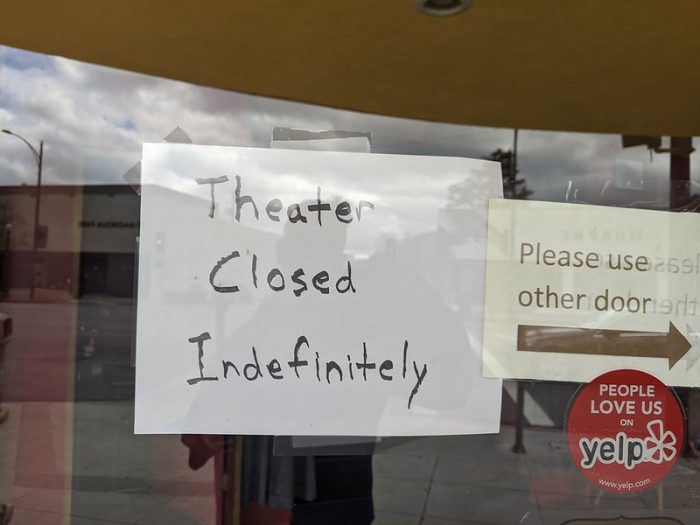
In his memo, chairman David Bradley noted three areas where The Atlantic is having trouble: Advertising, events, and video. Advertising is no surprise — it’s been decimated for nearly everyone, with losses accelerating in the last couple months — but events and video were once seen as potential bright spots for digital publishers — ways to diversify their revenue and reach new audiences. If there was any doubt, it’s now gone: Video and events will not save us.
First up, video: We “are closing our video department,” Bradley wrote. A couple years ago, publishers raced to bulk up their video departments, guided in part by Facebook’s now-extremely-suspect-seeming guidance that it was really, actually what news consumers wanted. It turns out they do not. The 11 members of The Atlantic’s video team accounted for half of the layoffs on the editorial side, per The Washington Post.
It’s been a hard day @theatlantic. I’m among the dozens who lost our jobs. I have loved working on stories about immigration and the border here with the smartest people I could hope to call colleagues. Here’s a few highlights from our (now-employable!) video team. (thread)
— Jeremy Raff (@JeremyRaff) May 21, 2020
wow, golden oldie, the time @Facebook lied about its numbers and got half the journalism industry to run off a cliff and everyone lost their job. https://t.co/L8BYfttBcP
— Josh Marshall (@joshtpm) May 22, 2020
But The Atlantic’s events business, AtlanticLIVE, was hardest hit. From Bradley’s memo:
Virtual events can’t bring in nearly as much money as live ones. For one thing, people aren’t that inclined to pay for something if they’re just going to be sitting at their desks. (On Thursday, we ran a post about how the Center for Cooperative Media brought its annual summit online; while “attendees” jumped, most of those people weren’t paying — one of the first things the Center did was make tickets free.)In one week in March, maybe two, the ground fell out from under live events — live anything worldwide. Of necessity, our events work went virtual. It turns out, there is substantial room for original creation in a zoom-led frame on life; to begin, we are able to bring our writers into conversation with our readers — at a scale no hotel ballroom can match. Even so, all of us hope for that day when we can create, or contribute to, signature events such as The Atlantic Festival and the Aspen Ideas Festival.
As my colleague Joshua Benton wrote in March, even as parts of the U.S. economy start to reopen, conferences will be among the last things to come back — if they do at all:
The time gap in the conference business will be longer than in a lot of other areas. And events revenues will dry up for a longer period of time than, say, advertising revenue.
Most conferences are, like Wall Street Journal print subscriptions, ultimately paid for by companies who determine the information gained by their employees will be worth the cost. And who knows how businesses will look at a $600 registration fee, round-trip flights, and four nights at the DoubleTree after all this?
And all the people who plan and work on those conferences — many of them will either lose their jobs or be reassigned to different work. After coronavirus, how many of them will want to or be able to return to their old work, right away or at all? How much muscle memory will be lost as predictable planning processes suddenly go fractal all across the calendar?
Since Josh wrote that in March, we’ve learned more about how COVID-19 spreads, and poorly ventilated indoor spaces packed with people talking are going to be a must-avoid long after beaches and restaurants have reopened. (The Online News Association announced Thursday, by the way, that its annual conference this October will be fully virtual.)
@AtlanticLIVE gave me my start in professional journalism and these are some really top-notch human beings and journalists.
— Scott Nover (@ScottNover) May 21, 2020
Along with 67 incredible people at @TheAtlantic, I’ve been notified today that my job @AtlanticLIVE is being eliminated. It’s been the honor of a lifetime to work for this incredible publication and with the most talented and generous group of people I’ve ever met. (1/
— Jacqueline (@jacqlandry_) May 21, 2020
I am thinking of everyone at @TheAtlantic today, but especially @AtlanticLIVE. It’s one of the most generous, hardworking, and exceptional events teams out there. The work they do is crucial. My time there made me the event professional I am today, and I am so thankful for that.
— Sherene Joseph (@ShereneJoseph) May 21, 2020
For two years, I have gotten to produce journalism about criminal justice reform, economic inequality, and more at events across the country. I am proudest of my work when it has helped someone tell their story and be heard. Thank you @robhendin, @MaryMSuh & all of @AtlanticLIVE.
— Stefanie Fernández (@matervamami) May 21, 2020